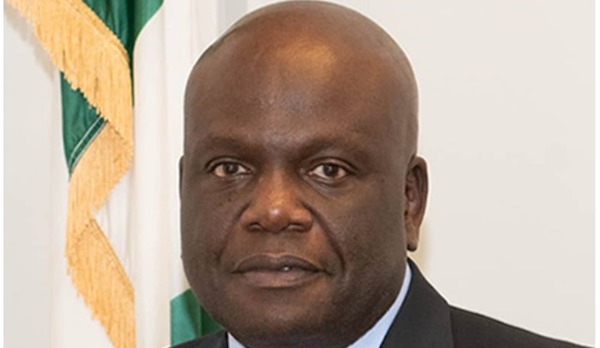Business
More troubles in aviation sector, as NCAA threatens to sanction local airlines over N19bn debt

Local airline companies in Nigeria have been issued the riot act by the Nigerian Civil Aviation Authority (NCAA) because of N19 billion indebtedness.
Capt. Musa Nuhu, the Director General of the NCAA, on Tuesday warned that the aviation watchdog would not hesitate to suspend the certificates of defaulting airline operators.
He issued the warning in Lagos while addressing a meeting with ground handlers and members of the Airline Operators of Nigeria.
Nuhu revealed that the airlines are also indebted to the Federal Airports Authority of Nigeria (FAAN) and the Nigerian Airspace Management Agency (NAMA) to the tune of N18 billion and N5 billion, respectively putting the total debt to aviation agencies at N42 billion and $7.8 million.
According to the regulatory body, any indebted airline must sign a Memorandum of Understanding (MOU) outlining the terms of payment, and any airline that defaults three times would have its Air Operator Certificate (AOC) suspended.
Further, Nuhu claimed that airlines are covering up their existing problems by portraying government organisations as evil.
Read also: Aero Contractors shut down flight operations as hike in price of aviation fuel lingers
He said, “The airlines owe FAAN landing and parking charges, while they are also hugely indebted to NAMA in terminal and navigational charges. If the debts owed to the agencies were not paid back immediately the aviation organisations may collapse very soon.”
Domestic airlines, according to him, have received more than 19 billion naira but have not sent them to the NCAA for distribution.
Nuhu also made a suggestion that the NCAA and other organisations would be reviewing agency charges after 13 years.
The NCAA Chief also stressed stated that all fees collected by NCAA were legal and compliant with the Civil Aviation Act 2006 despite the fact that the airlines and the overall aviation sector were going through a particularly difficult moment.
He claimed that the airlines merely collected TSC/CSC from the passengers on behalf of the agencies, and he questioned why the operators would charge it with imposing various levies.
The NCAA boss said, “NCAA relies 100 per cent on its Internally Generated Revenue (IGR). The 5 per cent TSC paid by passengers is 85 per cent of NCAA revenue, while the other 15 per cent comes from airlines as payment for services provided and they are all cost recovery. We don’t also impose any excess baggage charge on the airlines. I wonder where the operators saw this.
“The airlines have intentionally refused to pay the debts owed us despite the fact that they have collected such from the passengers. The airlines collect money and refuse to transmute such to the right authorities. AON wants us to provide services for free for them. What the airlines are trying to do is to defunct NCAA. You have refused to give us our legitimate money. The fees we are charging the airlines are just cost recovery and we are actually subsidising the airlines.”
The Central Bank of Nigeria granted $265 million to address concerns affecting the aviation sector, with a portion of that amount going to liberate blocked funds belonging to foreign airlines.
According to reports, $230 million of the intervention fund will be used for FX intervention, and another $35 million was made available through a Retail SMIS auction to pay off unpaid ticket purchases.
Join the conversation
Support Ripples Nigeria, hold up solutions journalism
Balanced, fearless journalism driven by data comes at huge financial costs.
As a media platform, we hold leadership accountable and will not trade the right to press freedom and free speech for a piece of cake.
If you like what we do, and are ready to uphold solutions journalism, kindly donate to the Ripples Nigeria cause.
Your support would help to ensure that citizens and institutions continue to have free access to credible and reliable information for societal development.
























